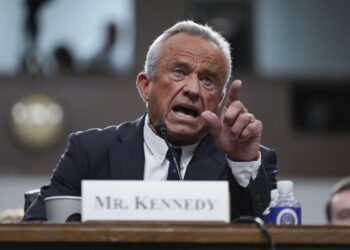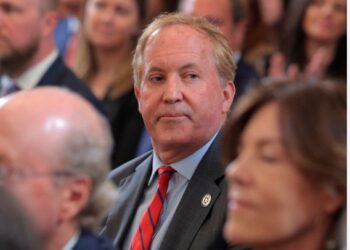In a Thursday WarRoom discussion, former CIA operative Sam Faddis revealed concerns about the ties between the Obama administration, particularly Susan Rice, and the strategic relationships between China and Iran. He emphasized that these alliances pose significant risks to U.S. national security, especially as the nation approaches the 2024 elections.
National Security: The Interconnected Web of Influence
During a recent conversation, Sam Faddis, a former CIA operative, addressed the dangerous interconnectedness of key figures from the Obama administration with hostile foreign powers. Faddis pointed specifically to Susan Rice, who he claims has been central to these troubling dynamics. He remarked, "It’s amazing that interconnectivity of the Obama elite,” highlighting how individuals like Rice have maintained relationships with entities linked to the Chinese Communist Party and Iranian interests.
These ties are not just casual; they indicate a broader strategy that undermines U.S. national security. Faddis revealed significant financial contributions made by Chinese intelligence operatives to American political figures.
This kind of financial influence raises severe questions about loyalty and accountability within the U.S. government. As these relationships deepen, the risks they pose to national security grow, especially as the U.S. faces numerous geopolitical challenges.
Dangerous Coalitions: China and Iran
Faddis also emphasized the perilous alliances forming between China, Iran, and even elements within the U.S. government. He explained that these countries have a "toxic mix” of interests with a shared goal of destabilizing the United States. This confluence of foreign adversaries is alarming, especially as they do not need to have identical agendas to work against American interests. Faddis warned, "Their play on for the other side,” indicating that key players in the U.S. are not only ignoring these threats but may even be complicit in them.
The situation is further complicated by the past actions of the former Obama administration, which Faddis argues have created a pathway for these adversaries to exert influence over American politics. He stated, "We have been looking past this for a long time,” illustrating the neglect of these significant threats. As the potential for increased cooperation between these hostile nations becomes more pronounced, it underscores the need for vigilance and accountability in U.S. foreign policy.
Why It Matters Before the Election
As the 2024 elections approach, the implications of these connections become even more pressing. Faddis believes that understanding these dynamics is crucial for voters. He argues, "We gotta have a fundamental change in policy,” indicating that the past approach of engaging with adversarial nations has been a strategic mistake. As voters head to the polls, they must consider the consequences of these alliances and the potential risks they pose to national security.
In a time when misinformation and propaganda can significantly sway public opinion, it is vital to understand the complex connections between domestic politics and foreign influence. Faddis’s insights are a wake-up call for Americans to scrutinize political leaders’ motivations and demand accountability from those in power. The nation’s security hinges on informed citizens understanding the stakes in these critical relationships. As we navigate these challenging waters, the need for transparency and integrity in our government has never been more vital.
For more WarRoom coverage on the Obama administration:
Unveiling the Shadow Network: Barack H. Obama’s Lasting Impact According to Lee Smith
Steve Bannon vs. Lois Lerner: Unpacking the Double Standards of Justice Under Obama
For more context, watch the full Thursday interview with Sam Faddis:





![Bannon’s WarRoom, Show Clip Roundup 9/16/2024 [AM]](https://warroom.org/wp-content/uploads/2024/09/2021-11-15T145339Z_2109304427_RC22VQ9U9P74_RTRMADP_3_USA-CAPITOL-SECURITY-BANNON-1024x694-1-75x75.jpg)